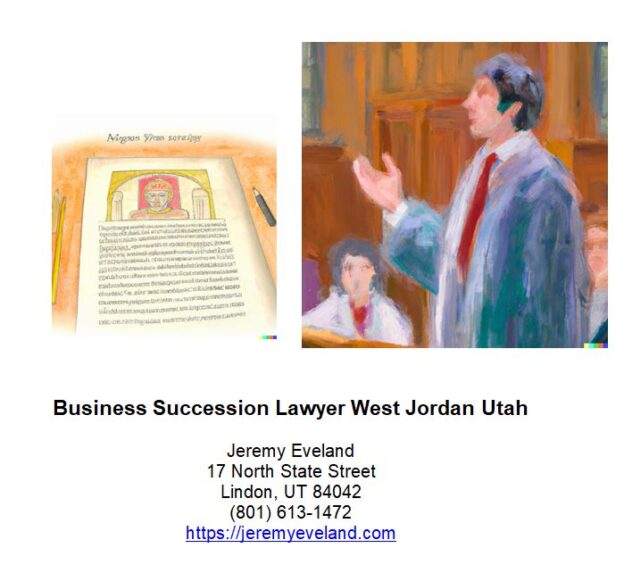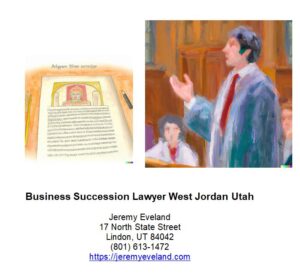In today’s competitive business environment, it is essential for companies to maintain an ethical and transparent culture. Failure to comply with conflict of interest training can have severe consequences, including termination. This article will shed light on the importance of conflict of interest training and the potential repercussions of non-compliance. By understanding the legal implications and taking proactive measures, business owners and executives can safeguard their organizations from conflicts and preserve their reputation. In the following paragraphs, we will discuss frequently asked questions surrounding this topic, providing concise answers to address common concerns.

Overview of Conflict of Interest Training Non-compliance
Conflict of interest is a situation that arises when an individual’s personal or financial interests conflict with their professional obligations. Conflict of interest training is crucial for employees to understand the ethical and legal implications of such situations, and to ensure that they can navigate them appropriately. However, non-compliance with conflict of interest training can have serious consequences for both individuals and the organizations they work for.
Definition of Conflict of Interest
Conflict of interest refers to a situation in which an individual’s personal interests, such as financial gain or personal relationships, could influence or compromise their professional judgment or actions. It is important to identify and address potential conflicts of interest to ensure fairness, impartiality, and integrity in business dealings.
Importance of Conflict of Interest Training
Conflict of interest training plays a vital role in creating awareness among employees about the potential risks and consequences associated with conflicts of interest. By providing employees with the knowledge and skills to identify, address, and appropriately manage conflicts of interest, organizations can maintain ethical standards and protect their reputation.
Legal Requirements for Conflict of Interest Training
Many jurisdictions have legal requirements for conflict of interest training, particularly in industries where conflicts of interest are common, such as finance, healthcare, and government. These requirements vary, but often involve mandatory training programs and the establishment of policies and procedures to prevent and address conflicts of interest.

Consequences of Non-compliance
Non-compliance with conflict of interest training can have significant consequences for both employees and organizations. Employers have a responsibility to enforce ethical standards and protect their interests, which may lead to disciplinary actions, including termination. Failure to address conflicts of interest adequately can also result in legal repercussions, damage to reputation, loss of business opportunities, and even litigation.
Termination as a Consequence of Non-compliance
Termination and Employment Law
Termination of an employee for non-compliance with conflict of interest training must be conducted in accordance with employment laws and regulations. Employers need to ensure that they follow due process and act fairly when terminating an employee to minimize legal risks.
Legal Grounds for Termination
The legal grounds for terminating an employee for conflict of interest non-compliance may vary depending on the jurisdiction and employment contracts. Generally, termination can be justified if an employee knowingly engages in activities that create conflicts of interest, breaches ethical guidelines, or violates company policies despite receiving proper training.
Due Process and Fairness
Employers must adhere to due process and fairness when terminating an employee for conflict of interest non-compliance. This includes providing the employee with notice of the allegations, an opportunity to respond and provide evidence, and a fair and impartial review of the situation before making a decision on termination.
Termination Process for Non-compliance
The termination process for conflict of interest non-compliance should be well-documented and transparent. It is crucial to gather all relevant evidence, consult legal counsel, and ensure that the termination decision is supported by clear and objective reasons. This process helps protect the employer’s interests while minimizing the risk of legal challenges.
Preventive Measures and Best Practices
Effective Conflict of Interest Policies
Implementing comprehensive conflict of interest policies is essential for preventing non-compliance. These policies should clearly define what constitutes a conflict of interest, outline reporting mechanisms, and specify the consequences of non-compliance. Regular reviews and updates of these policies are also necessary to address evolving business practices and legal requirements.
Regular Training and Awareness Programs
Regular conflict of interest training and awareness programs are key to ensuring that employees understand their obligations and are able to identify and address conflicts of interest appropriately. Training sessions should cover topics such as recognizing conflicts of interest, reporting mechanisms, and the potential consequences of non-compliance.
Monitoring Compliance
Organizations should establish monitoring mechanisms to ensure ongoing compliance with conflict of interest policies. This may include periodic audits, internal reporting systems, and the appointment of compliance officers who can detect and address potential conflicts of interest.
Disciplinary Actions Short of Termination
Not all instances of conflict of interest non-compliance warrant termination. Employers should consider implementing a range of disciplinary actions, such as written warnings, retraining, demotions, or probation, depending on the severity and frequency of the non-compliance. This approach encourages employees to learn from their mistakes and rectify their behavior while minimizing the impact on their employment.
Handling Conflict of Interest Allegations
Investigation Procedures
When a conflict of interest allegation arises, organizations should have clear investigation procedures in place. These procedures should outline the steps for initiating an investigation, collecting evidence, conducting interviews, and reaching a conclusion. The investigation process should be fair, objective, and impartial to ensure the integrity of the findings.
Confidentiality and Whistleblower Protections
Maintaining confidentiality is crucial when handling conflict of interest allegations. Employees who report potential conflicts of interest should be protected from retaliation or discrimination through well-defined whistleblower protections. These protections encourage employees to come forward with information, allowing organizations to address conflicts of interest effectively.
Decision-making and Reporting
Once an investigation is complete, the decision-making process should be transparent and based on the evidence gathered. If a conflict of interest is confirmed, organizations must report the findings to the appropriate authorities, stakeholders, or regulatory bodies as required by law.
Mitigating Damages and Legal Consequences
In cases where conflicts of interest have resulted in damages or legal consequences, organizations should take appropriate actions to mitigate the harm. This may involve rectifying financial losses, implementing corrective measures, or seeking legal advice to minimize the impact on the organization’s reputation and financial standing.

Common Examples of Conflict of Interest in the Workplace
Financial Interests
Employees who have a financial stake in a transaction or business deal may face conflicts of interest. For example, an employee who owns shares in a company with which their employer is conducting business may be tempted to manipulate the situation for personal gain.
Receiving Gifts or Kickbacks
Accepting gifts, kickbacks, or other forms of personal benefits from clients, vendors, or other parties can create conflicts of interest. These personal benefits may compromise an employee’s judgment and integrity, leading to biased decision-making.
Outside Employment or Consulting
Engaging in outside employment or consulting activities that conflict with an employee’s obligations to their employer can create conflicts of interest. For example, an employee offering services to a competitor while working for their current employer may compromise confidential information or divert resources.
Nepotism or Favoritism
Granting preferential treatment or employment opportunities to family members, friends, or personal connections can create conflicts of interest. Such actions may compromise fairness, merit-based decision-making, and may not serve the best interests of the organization.
Signs of Potential Conflict of Interest
Inconsistent Decision-making
If an employee’s decisions or actions consistently benefit themselves, their family, or their friends without a clear business justification, it may be a sign of a conflict of interest. Inconsistent decision-making may indicate that personal interests are influencing the employee’s behavior.
Undisclosed Relationships
Employees who fail to disclose personal relationships with individuals or organizations involved in business dealings may be in a conflict of interest situation. It is important for employees to be transparent about any personal connections that could potentially influence their judgment.
Improper Use of Company Resources
When employees use company resources, such as time, equipment, or intellectual property, for personal gain or unauthorized purposes, it may point to a conflict of interest. Such actions can result in unfair advantages or a misuse of company assets.
Unfair Competitive Advantage
Employees who use their position within an organization to gain an unfair competitive advantage for themselves, their family, or their friends may be involved in a conflict of interest. This can harm the organization’s reputation, erode trust among stakeholders, and potentially lead to legal consequences.
Steps to Ensure Compliance
Developing a Comprehensive Training Program
To ensure compliance with conflict of interest policies, organizations should develop and implement a comprehensive training program. This program should cover the definition and examples of conflicts of interest, reporting mechanisms, and the consequences of non-compliance. Training should be mandatory for all employees and regularly updated to reflect changes in laws and regulations.
Regular Auditing and Monitoring
Regular auditing and monitoring of employees’ compliance with conflict of interest policies are necessary to identify potential non-compliance. Organizations should establish auditing processes to assess the effectiveness of their policies, identify any gaps or weaknesses, and take appropriate corrective actions.
Reporting and Escalation Protocols
Organizations should establish clear reporting and escalation protocols to encourage employees to report conflicts of interest without fear of retaliation. These protocols should define the procedures for reporting, assigning responsibility for handling reports, and ensuring that the appropriate actions are taken.
Enforcing Consequences for Non-compliance
To maintain a culture of compliance, organizations must consistently enforce the consequences for non-compliance with conflict of interest policies. This may include disciplinary actions, as outlined in the organization’s policies, to deter employees from engaging in conflicts of interest and to promote a fair and ethical work environment.
Collaboration with Legal Counsel
Role of Lawyers in Conflict of Interest Training
Legal counsel plays a crucial role in advising organizations on conflict of interest training and compliance. Lawyers can help develop comprehensive policies and training programs, ensure compliance with legal requirements, and provide guidance on handling conflicts of interest allegations.
Consulting on Policy Development
Lawyers can provide valuable insights and expertise in developing conflict of interest policies that align with legal requirements. They can analyze potential risks, assist in drafting clear policies, and ensure compliance with applicable laws and regulations.
Guidance in Termination Processes
When it comes to terminating an employee for conflict of interest non-compliance, legal counsel can provide guidance on the legal rights and obligations of both the employer and the employee. They can help ensure that the termination process adheres to employment laws, mitigating the risk of potential legal challenges.
Litigation and Risk Mitigation
In situations where conflict of interest non-compliance escalates into litigation or other legal disputes, legal counsel can provide representation and guidance. They can assess the legal risks and help develop strategies to mitigate damages and protect the organization’s interests.
FAQs about Conflict of Interest Training Non-compliance
1. Can termination be the immediate consequence of non-compliance?
Termination can be a consequence of non-compliance with conflict of interest training, but it should only be pursued after due process and fairness have been followed. Employers should consider less severe disciplinary actions before resorting to termination.
2. What legal grounds are necessary for terminating an employee?
The legal grounds for terminating an employee for conflict of interest non-compliance may vary depending on jurisdiction and employment contracts. Generally, termination can be justified if an employee knowingly engages in activities that create conflicts of interest, breaches ethical guidelines, or violates company policies despite receiving proper training.
3. How can companies prevent conflict of interest non-compliance?
Companies can prevent conflict of interest non-compliance by implementing effective conflict of interest policies, conducting regular training and awareness programs, monitoring compliance, and enforcing consequences for non-compliance. Collaboration with legal counsel can also provide guidance in developing preventive measures.
4. Should companies handle investigations internally or hire external investigators?
The decision to handle investigations internally or hire external investigators depends on various factors, such as the complexity of the allegations and the company’s resources. In some cases, external investigators may provide an impartial and objective perspective, ensuring transparency and fairness in the investigation process.
5. How does conflict of interest non-compliance affect a company’s reputation?
Conflict of interest non-compliance can severely impact a company’s reputation, damaging its credibility and trustworthiness among stakeholders. This can lead to a loss of business opportunities, potential legal consequences, and difficulties attracting clients or investors who prioritize ethical conduct.
Conclusion
Compliance with conflict of interest training is crucial for organizations to maintain ethical standards, protect their reputation, and mitigate legal risks. By implementing effective training programs, developing comprehensive policies, and enforcing consequences for non-compliance, companies can promote a culture of integrity and minimize the negative impact of conflicts of interest. Collaboration with legal counsel can provide invaluable guidance throughout the process, ensuring compliance with applicable laws and regulations. If you require assistance or advice in conflict of interest training and compliance, contact our legal team for a consultation. Together, we can help your organization navigate the complexities of conflict of interest and safeguard its interests. Call us today to discuss your specific needs and find out how we can assist you.













